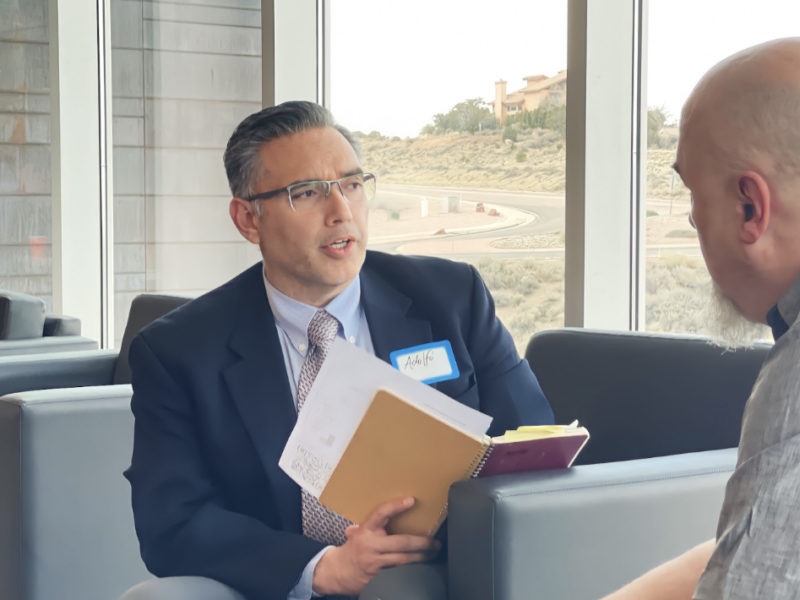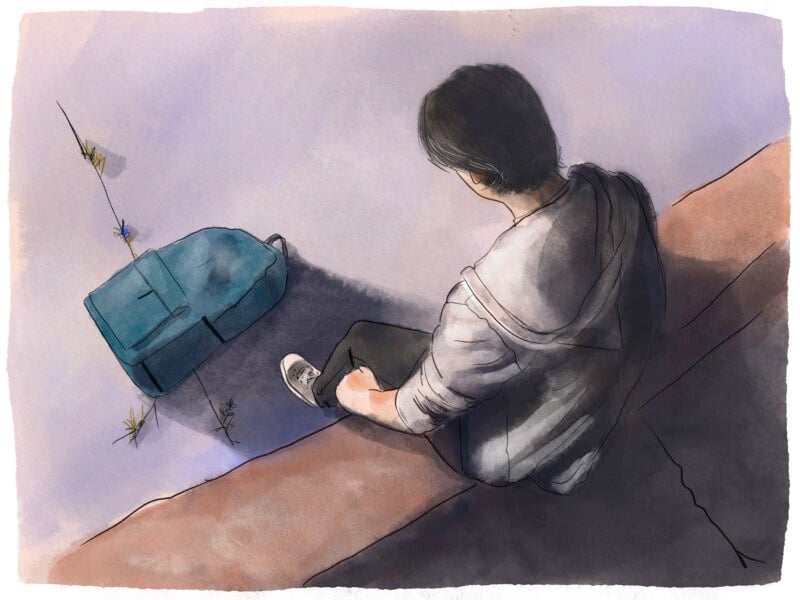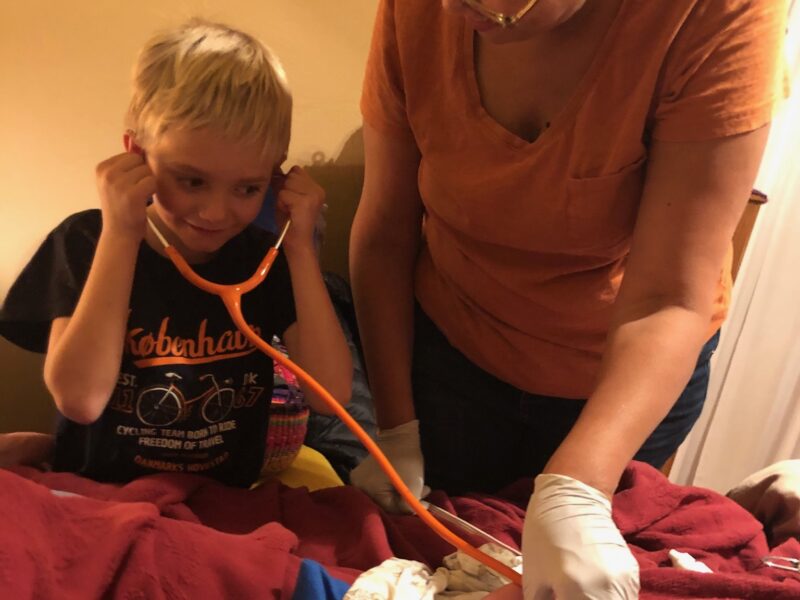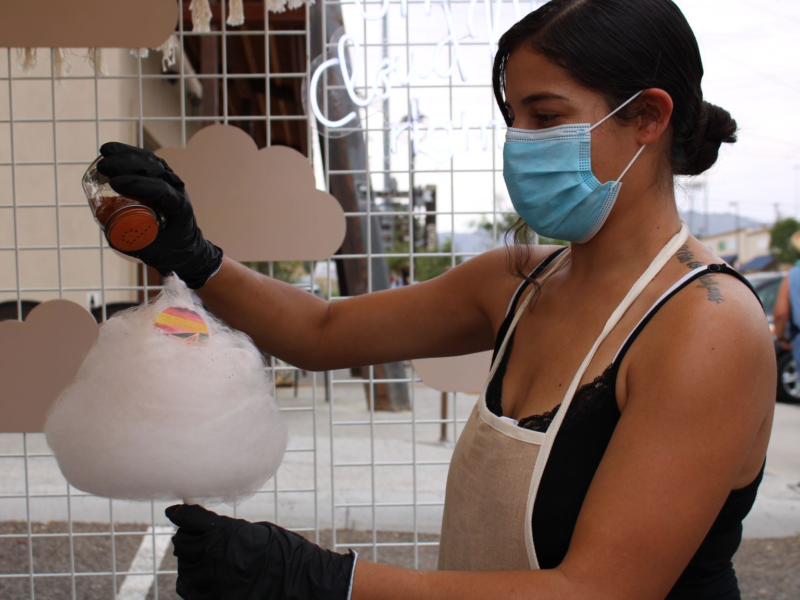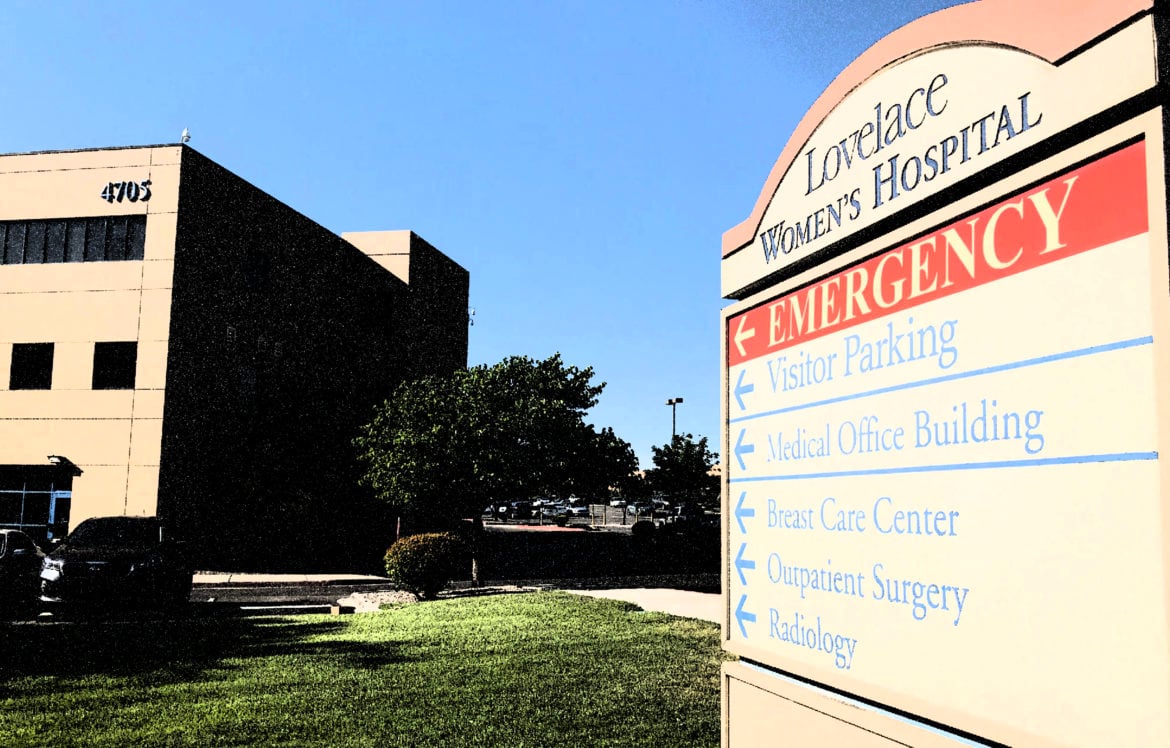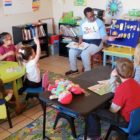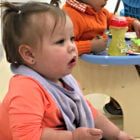This is an exerpt of New Mexico In Depth’s mid-week newsletter that went out Wednesday, Feb. 28. We think it’s crucial to stay in touch and tell you what’s on our minds every week. Our newsletters aim to do just that. We’d like to hear what’s on your mind, as well.
Children
Doing impactful journalism in a chaotic world
|
I got into journalism years ago out of a desire to help people, as much a calling as a job. The last several days have reminded me why. A federal investigation released last week backed up the reporting of Bryant Furlow who wrote in June for us and our partner, ProPublica, that Lovelace Women’s Hospital had violated patients’ rights. Indeed, the investigation by the state of New Mexico and U.S. Centers for Medicare and Medicaid Services (CMS) found the hospital had singled out pregnant Native American women for COVID-19 testing and separated mothers from their newborns without adequate consent until test results became available.Lovelace has submitted a plan to correct problems and has promised to conduct internal audits to ensure compliance with state and federal regulations and COVID-19 screening guidance.Lovelace has denied any wrongdoing, saying it never separated a baby from their mother without consent.But Native American mothers told investigators they “felt pressured or misled by the hospital when it came to ZIP code-based COVID-19 testing and newborn separations.”In one case, a Native American mother told investigators she was tested for COVID-19 without being informed she could say no. Only once labor had been induced, she told investigators, did a nurse-midwife explain that her newborn would be taken until her test results were available, NM In Depth reported.
She then was given two options, the mother told investigators:
She could stop the medication inducing contractions and sleep while she waited for test results, or she could continue the birth process and have her newborn taken away “because that’s the policy.”
“I told her, ‘You are not going to do that, and you are not going to take my baby,’” she told investigators.
child care
Childcare centers see low COVID-19 transmission
|
About 30 toddlers had already arrived on July 13 for their day at the UNM Children’s Campus when Daniela Baca learned someone who visited the center regularly had tested positive for COVID-19.
Within an hour, the facility had emptied out and she had contacted the state health department. “We needed to stop accepting children,” she said. “We switched gears into making sure that we notified families what was going on.”
By mid-day, Baca had shifted her focus from caring for children to working with a pandemic rapid response team composed of workers from several state agencies. The team tested all staff and children that came into contact with the person infected by the virus, sanitized every inch inside and outside. They also tried to find out every person the infected person might have come into contact to prevent the spread at other locations.
2020 Legislative Session
Funding the Future: An early education trust fund
|
The term “trust fund babies” may evoke millennial hipsters in trendy urban neighborhoods living off wealth stockpiled by their more entrepreneurial parents or grandparents. It’s a lifestyle most working class New Mexico families perhaps wouldn’t recognize or even aspire to. But Rep. Doreen Gallegos, D-Las Cruces, sometimes has trouble explaining her proposal to create a revenue source to support the new state Early Childhood Education and Care Department. So she’s marketing the idea as a trust fund for the state’s 123,630 children under age 5. The analogy is a good one.
The rich grandparents would be the state of New Mexico.
Child Care
Low pay: A stumbling block for quality childcare
|
Michelle Masiwemai takes a selfie with some of the children she cared for at Best of the Southwest day care center in Las Cruces. Michelle Masiwemai — like many early childhood workers — is a mom. But her job at a Las Cruces home-based child care center didn’t pay enough to support her 8-year-old daughter, who lives with her parents in Guam while she and her fiancé try to get on firmer financial footing. The daughter of two educators, including a kindergarten teacher who now teaches early childhood education at the college level, Masiwemai was raised in a family of 10 children.
“My whole life I’ve been around children. I was a babysitter.
Child Care
What is high quality childcare?
|
Valeria Holloway, owner of Best of the Southwest Day Care Center in Las Cruces, teaches preschool. She uses a curriculum that she learned in Virginia but is hoping to get a contract for New Mexico PreK. Don’t call her a babysitter. That’s a teenager who wants $50 and pizza to watch your children on date night.
Valeria Holloway has taken care of children professionally for nearly 20 years. She started in the business, as many young mothers do, because the cost of child care was so high that it would have eaten up most of her salary, and she preferred to stay home with her new child.
Child Care
More parents will get help with child care under CYFD proposal
|
A toddler waits while her companions finish an Easter cake for students at Bright Beginnings Child Development Center in Jal, NM. More New Mexico families will qualify for child care assistance without being wait-listed, and could stay longer on the program under proposed rules posted Monday by the Children Youth and Families Department. Under current eligibility limits put in place in the wake of a lawsuit against CYFD, families can qualify and stay on the child care program if they make less than two times the federal poverty level, but not one dollar more. The proposal would take the exit point up to 250% of the poverty level.
To put the changes in perspective, a single mother with two children could make up to $42,660 per year and qualify, and could keep getting child care assistance with increasing co-pays until she earned $53,325. About 90 percent of child care assistance recipients are single-parent households.
child wellbeing
Dismal Kids Count data tracks with Martinez administration
|
Samantha Sanchez, 10, reads for 20 minutes in Sharon Scarlott’s class at Gonzales Community School in Santa Fe on Dec. 20, 2013. The Martinez administration had proposed $13.5 million for remediation and intervention for students struggling to read in kindergarten through third grade. The easiest number to understand in the just-released 2019 Annie E. Casey Kid’s Count report is that New Mexico ranks 50th overall in child well-being. That’s a stark ranking, the second year in a row New Mexico earned that distinction.
Child Care
After initial bump, CYFD proposes tighter eligibility for child care help
|
When NM In Depth reported on a settlement earlier this month in a lawsuit against the Children Youth and Families Department over its policies on child care assistance, a big money question was left hanging. CYFD agreed to temporarily bump initial eligibility for child care subsidies to families earning up to 200% of the federal poverty level, from 150%, but the department would need supplementary funding if it was going to keep it at that level. Part of the settlement with OLÉ and the New Mexico Center on Law and Poverty also said the department needed to come up with new eligibility rules within 90 days, and give the public a chance to weigh in. This week the department posted those proposed changes — taking eligibility to apply for assistance to just 160% of the federal poverty level. Those who already have the benefit would continue to keep it until they reach 200% of FPL.
Brian Blalock
Clarity, and some questions, on child care assistance
|
Last week the Children Youth and Families Department settled a lawsuit over who qualifies for child-care support and how it sets the out-of-pocket cost for low-income families. For now, all families with incomes under 200% of the federal poverty level ($51,500 for a family of four) can apply for subsidies that make child care more affordable while parents work or go to school. And it forces CYFD to post rules on their website and in all Early Childhood offices that help parents understand if they are eligible, what their co-pays might be and their right to appeal. But some questions remain unanswered — like whether the state will keep the eligibility level at 200% and whether current funding will cover the need. The Legislature boosted child-care assistance by about 7% during the 2019 legislative session.
2019 legislative session
Institute will take effort to combat child trauma statewide
|
Las Cruces City Councilor Kasandra Gandara is bringing together behavioral health, education, community organizing, child wellbeing and health groups in an effort to gather data on Adverse Childhood Experiences and use that information to combat childhood trauma. Tackling childhood trauma in a data-driven, community-based fashion went from an idea to an institute within the space of a year. Las Cruces City Councilor Kasandra Gandara knew from her years as a social worker at the Children Youth and Families Department that even front line workers in child protective services, faced with the hardest cases of abuse and neglect, were not aware of or trained in the theory of Adverse Childhood Experiences and the lifelong effects they have on health and learning. So when she read the book, “Anna, Age Eight: The Data-driven Prevention of Childhood Trauma and Maltreatment,” written by Katherine Ortega Courtney and Dominic Cappello, from research done at CYFD, she embarked on a mission to use data to prevent the heart-breaking instances of abuse she witnessed first-hand in Las Cruces and Dona Ana County. That project has grown swiftly.
